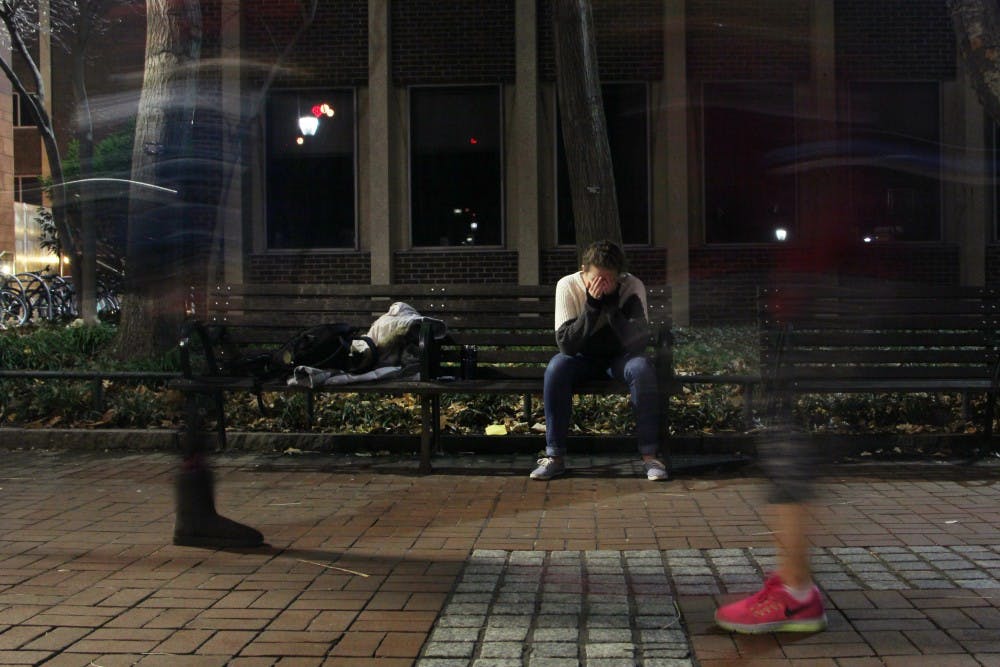Next semester will mark the launch of the Penn Wellness Partners program, one of the many programs intended to promote conversation between faculty and students.
Modeled after the LGBT Center’s “SafeZone” initiative in the College Houses, the program was organized by the Undergraduate Assembly, the Vice Provost for University Life and the Graduate and Professional Student Assembly. In the coming weeks, faculty and administration across the twelve schools will begin displaying Penn Wellness Partner stickers on office doors and windows to signal that they are knowledgeable about Penn’s mental health resources and willing to assist students.
UA President and College senior Jane Meyer said that the program was created to bridge the information gap between students and the administration.
“CAPS has so many great sources — but a lot of students don’t know about them,” Meyer said. “By letting them know that accessible people like their professor or advisor could help them in wellness issues, we’re trying to close this information gap.”
UA Communications Director and College sophomore Sola Park said that the Wellness Partners would be selected internally within VPUL. The partners will be drawn from a pool of administrators and faculty who are certified I CARE responders, CAPS Liaisons and/or those who have completed 16-hour Anti-Violence Advocate Training. Since the announcement of the program, VPUL has received over 100 applications from faculty and administrators interested in becoming Wellness Partners.
Vice Provost for University Life Valarie Swain-Cade McCoullum said that the program hopes to recruit anywhere between 35 and 50 partners for the upcoming semester. Wellness Partners will be offered an educational orientation to ensure they are aware of all resources. They will also receive a resource guide and other information on how to best assist students and make referrals.
Developing close relationships and personalizing issues of mental health is critical to the program, Meyer said.
“These partners are ideally someone in your life who is normally there day to day,” she said. “And when you see the sticker on their door, you feel comfortable asking them questions relating to wellness.”









